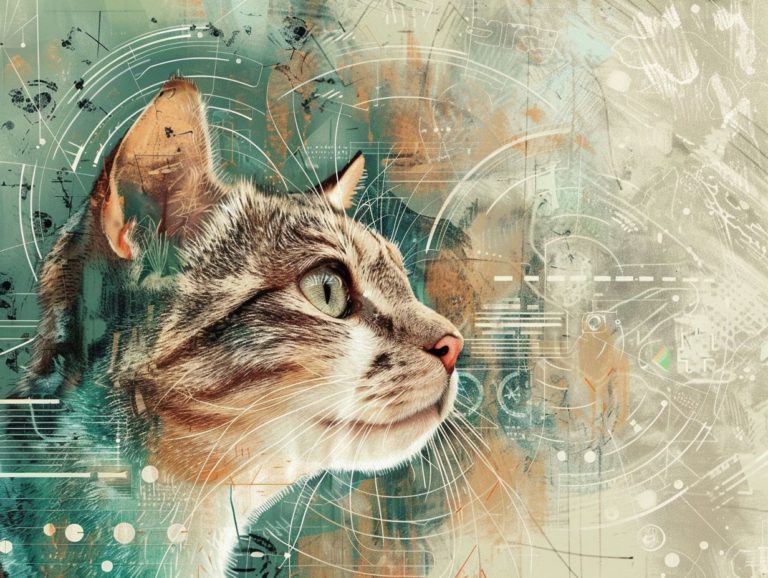Common Misconceptions About Senior Cat Insurance Debunked
The topic of senior cat insurance is often misunderstood. Many pet owners mistakenly believe that senior cats are not eligible for insurance or that insurance for them is too expensive.
This article aims to debunk these myths, highlight the benefits of senior cat insurance, and emphasize the importance of choosing the right insurance plan for your cat. If you are interested in providing financial protection and a sense of security for your senior cat, please continue reading.
Key Takeaways:
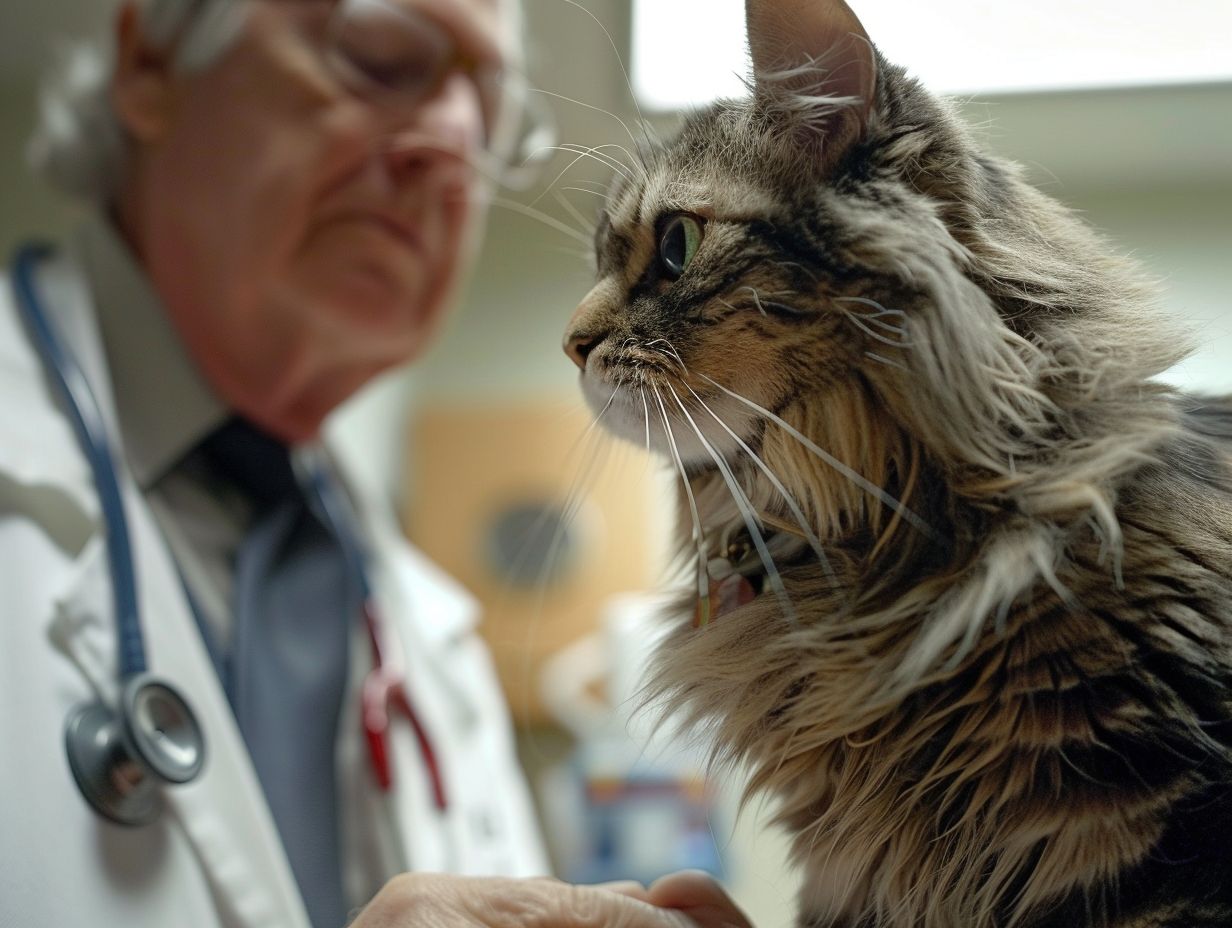
Understanding Senior Cat Insurance
Understanding Senior Cat Insurance involves grasping the available coverage options and dispelling common misconceptions that could potentially burden pet owners financially. A comprehensive senior cat coverage policy includes preventive care and regular vet visits as crucial components. By prioritizing preventive care, pet owners can maintain the health of their senior cats and detect potential issues early, potentially reducing the need for costly emergency procedures.
These misconceptions fail to recognize that senior cat insurance can offer financial benefits, providing peace of mind and safeguarding against financial risks. Regular veterinary check-ups play a key role in early health issue detection and in establishing and maintaining a comprehensive health record beneficial for insurance coverage and overall well-being.
What is Senior Cat Insurance?
Senior Cat Insurance is a pet insurance policy designed to provide coverage for accidents, illnesses, and preventive care for older cats. These policies reimburse the policyholder for veterinary expenses incurred due to covered incidents.
As cats age, they become more susceptible to various health issues, underscoring the importance of senior cat insurance in ensuring they receive necessary medical treatment. Accident coverage may include emergency vet visits, surgeries, and medications, while illness coverage typically entails treatments for common chronic conditions in older cats.
Preventive care coverage may encompass regular check-ups, vaccinations, and dental cleanings aimed at maintaining the overall health and well-being of your senior cat. This type of insurance can help alleviate the financial strain on pet owners and support them in offering optimal care for their aging feline companions.
Common Misconceptions About Senior Cat Insurance
Common misconceptions about senior cat insurance pertain to pet insurance myths, waiting periods, and coverage for surgical procedures. These misconceptions often dissuade pet owners from obtaining essential coverage for their senior cats.
Pet insurance myths are grounded in the belief that insurance is not beneficial for older cats. However, many insurance companies offer specialized plans for senior pets, providing comprehensive coverage for cat health insurance myths.
Waiting periods are frequently criticized because individuals perceive it as unjust to have a waiting period for senior cats when the insurance is intended for a specific surgery or condition. In reality, waiting periods are a standard practice and can potentially be waived.
Misconception #1: Senior Cats are Not Eligible for Insurance
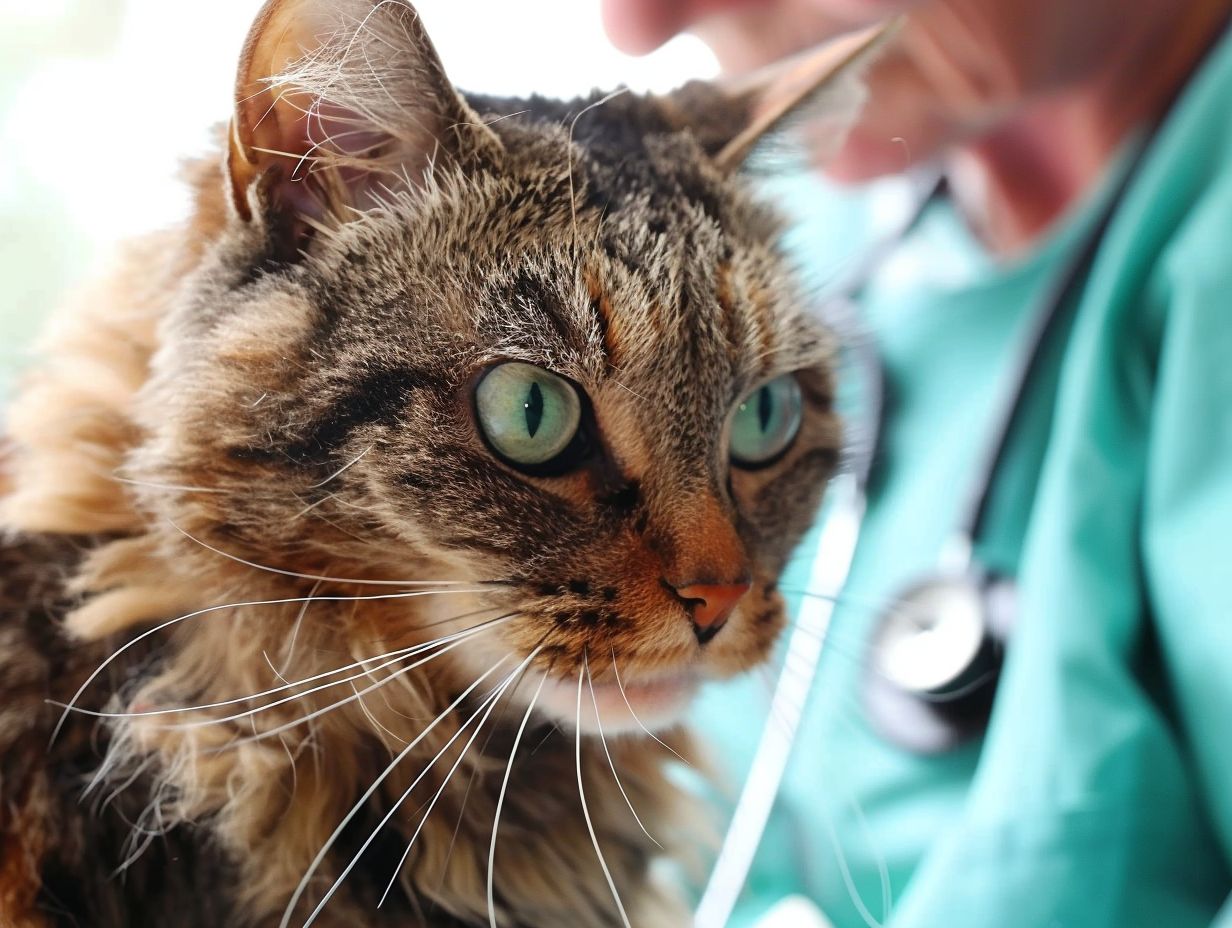
A common misconception is that insurance for senior cats does not exist, which is false. Insurance companies provide coverage for cats of all ages, including kittens and senior cats. Insurance for senior cats is particularly recommended because they may need more frequent vet visits and could potentially experience more fine print of senior cat insurance policies.
Insurance plans for older cats typically include coverage for chronic conditions, medications, and specialized treatments. By investing in insurance for your senior cat, you are guaranteeing they receive essential care without financial concerns. Some insurance companies offer wellness plans specifically tailored to promote the well-being of senior cats.
Misconception #2: Senior Cat Insurance is Too Expensive
Another misconception is that senior cat insurance is prohibitively expensive. While the costs of premiums and deductibles can vary, insurance costs can be manageable and provide financial protection against emergencies or illnesses.
The reality is that most insurance companies offer a wide range of premium and deductible options to suit different budgets. By selecting a plan that aligns with their financial means, pet owners can ensure they have coverage without overspending.
Despite the initial cost, pet insurance for senior cats can provide substantial savings over the long term. Insurance ensures that pet owners are not burdened by high out-of-pocket costs for unexpected medical treatments.
Misconception #3: Insurance Doesn’t Cover Pre-Existing Conditions
There is a common misconception that insurance does not cover pre-existing conditions in senior cats. While coverage for pre-existing and chronic conditions may be limited, certain policies do provide coverage for new conditions that arise in senior cats after enrollment. This means that if a senior cat is diagnosed with a new disease or experiences an unforeseen accident, the insurance plan can still offer financial assistance.
It is crucial for pet owners to differentiate between pre-existing conditions and newly developed conditions when considering purchasing insurance for their senior cat. With the appropriate coverage and a proactive approach, pet owners can ensure that their senior cats have access to necessary care without facing financial burdens.
Misconception #4: Insurance is Not Worth the Cost
Some pet owners may underestimate the value of pet insurance, overlooking the advantages of a streamlined claims process and the financial security that insurance offers during challenging times. By grasping the claims process for pet insurance, the significance of it for senior cat care becomes apparent.
Pet insurance provides pet owners with the assurance that they can cover the expenses of their pet’s medical treatment without being weighed down by financial concerns. Since senior cats are prone to needing medical attention, having insurance is a reliable means for owners to ensure they can afford the necessary care without being overwhelmed by costs.
Benefits of Senior Cat Insurance
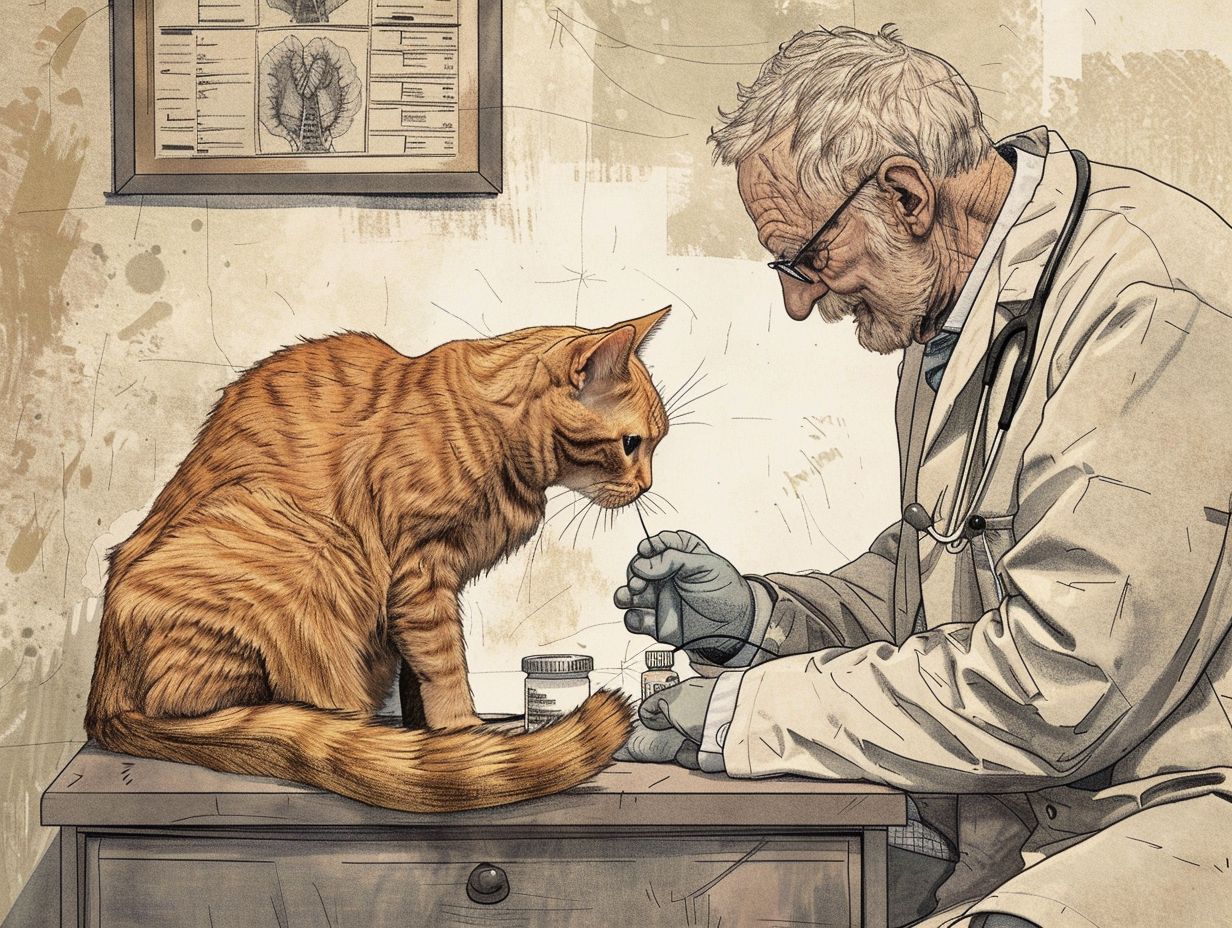
Senior Cat Insurance offers financial protection and peace of mind for pet owners, particularly for chronic conditions requiring ongoing veterinary care. By having an insurance policy, pet owners can enjoy comprehensive coverage for their senior cats, reducing the financial burden of expensive medical treatments and procedures.
With coverage for diagnostic tests, medications, surgeries, and hospitalization, pet owners can ensure optimal care for their elderly cats without being overwhelmed by high costs. Insurance encourages pet owners to seek timely medical attention for their senior cats, leading to improved health outcomes and enhanced quality of life for their furry companions.
Choosing the Right Senior Cat Insurance
The Right Senior Cat Insurance is a customizable plan that covers wellness exams and sets an annual limit corresponding to their specific healthcare needs. Owners can tailor their coverage to match the requirements of their aging feline companions by considering these factors.
When choosing senior cat insurance, it is crucial to consider the customization options to ensure that coverage can be adjusted to meet their pet’s specific needs. These options enable pet owners to ensure that their coverage is comprehensive and suitable for the medical requirements of their aging pet.
Coverage for wellness exams is another essential factor to consider, as regular check-ups and preventative care are vital for maintaining a senior cat’s health. Understanding an annual limit can assist pet owners in budgeting for expenses and ensuring consistent coverage for their cat’s medical needs within the policy’s limits.
Factors to Consider and Questions to Ask
When selecting insurance for senior cats, considerations revolve around preventive medication coverage, the reimbursement process, and eligibility for chronic conditions. Pet owners can inquire about these policy details to determine if a specific plan suits their senior cat’s needs.
It is crucial to understand the coverage for preventive medications to maintain your senior cat’s health. Familiarizing yourself with the reimbursement procedures is essential for effective budgeting and managing financial costs. Knowing how chronic conditions are addressed under the policy ensures ongoing care for your cat.
By asking targeted questions about these aspects, you can ensure that your senior cat receives adequate protection and support when necessary.
Final Thoughts and Recommendations
Senior Cat Insurance is essential because it offers pet owners a financial safety net to safeguard the health of their aging feline companions. Dispelling misconceptions and understanding policy benefits and types of coverage can assist owners in ensuring optimal care for their senior cats.
One common misconception about senior cat insurance is its perceived high cost, but the benefits of financial protection outweigh the monthly premium expense. Veterinary care for cats is becoming increasingly costly, and having insurance can provide relief when your senior cat insurance myths vs facts requires prompt and extensive medical attention.
Factors to consider when selecting coverage include whether the insurance plan covers pre-existing conditions, the coverage limit, customizable reimbursement options, and other features that can help tailor a plan to meet your cat’s specific needs. Senior cat insurance gives owners peace of mind, knowing they are prepared for any health issue their cat may encounter.
Frequently Asked Questions
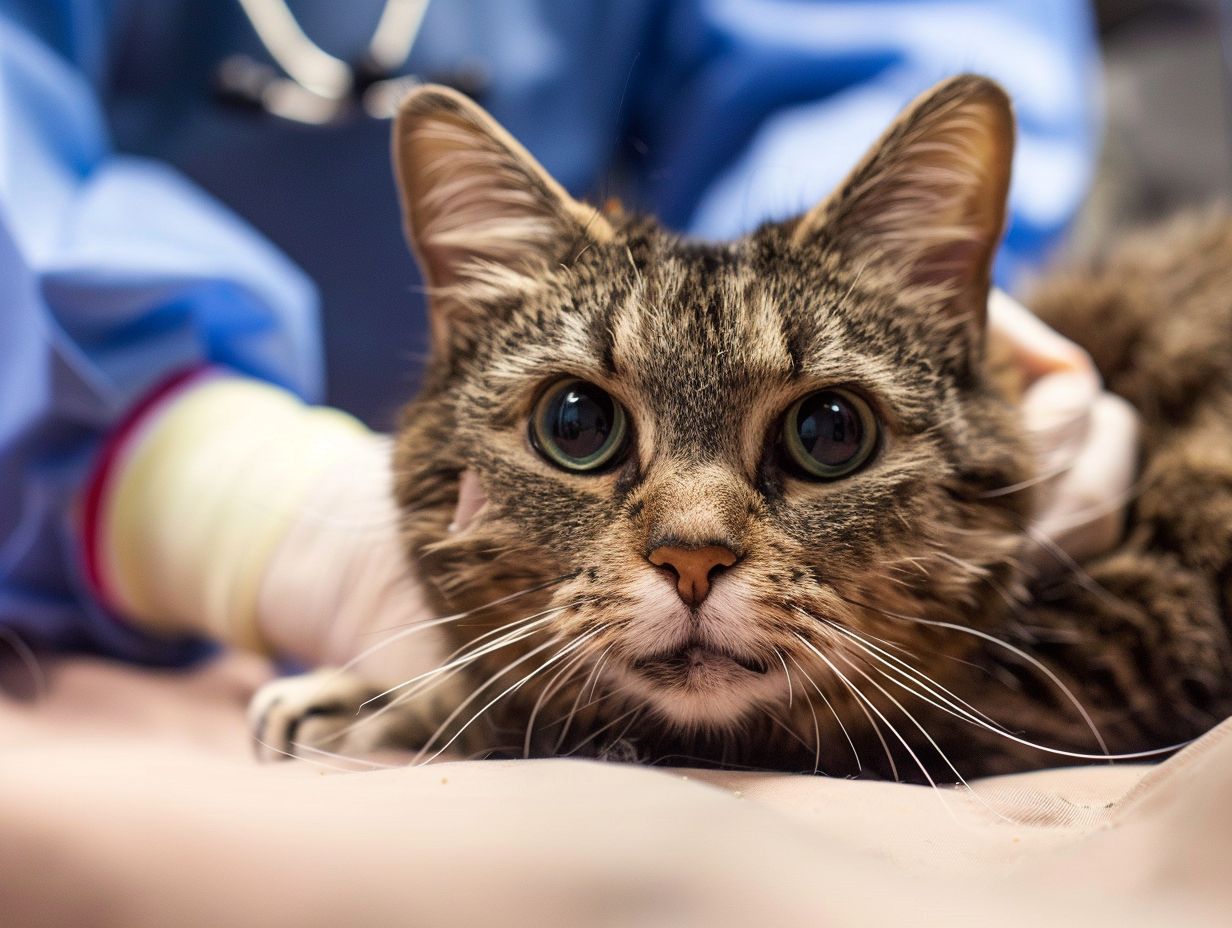
What is the common misconception about senior cat insurance?
The common misconception about senior cat insurance is that it is not worth the cost because older cats are more likely to have pre-existing conditions and may not be eligible for coverage.
Is it true that senior cats have limited coverage options?
No, it is not true. While some insurance companies may have age restrictions, there are still plenty of options available for senior cats. It is important to research and compare different policies to find the best one for your cat.
Do senior cats have to pay higher premiums for insurance?
Not necessarily. While some insurance companies may charge higher premiums for senior cats, there are also companies that offer affordable rates for older cats. It is important to shop around and compare quotes to find the best option for your budget.
Can pre-existing conditions be covered under senior cat insurance?
Yes, there are some insurance companies that offer coverage for pre-existing conditions in their senior cat policies. However, it is important to carefully review the terms and conditions of the policy to understand what is and is not covered.
Are there any age restrictions for senior cat insurance?
It depends on the insurance company. Some companies may have age restrictions, while others may offer coverage for cats of any age. It is important to research and compare different policies to find one that is suitable for your senior cat.
Is it too late to get insurance for my senior cat?
No, it is not too late. While it is ideal to get insurance for your cat when they are young and healthy, there are still options available for senior cats. It is important to be aware that there may be limitations and exclusions for pre-existing conditions, so it is important to carefully review the policy before enrolling your senior cat.

